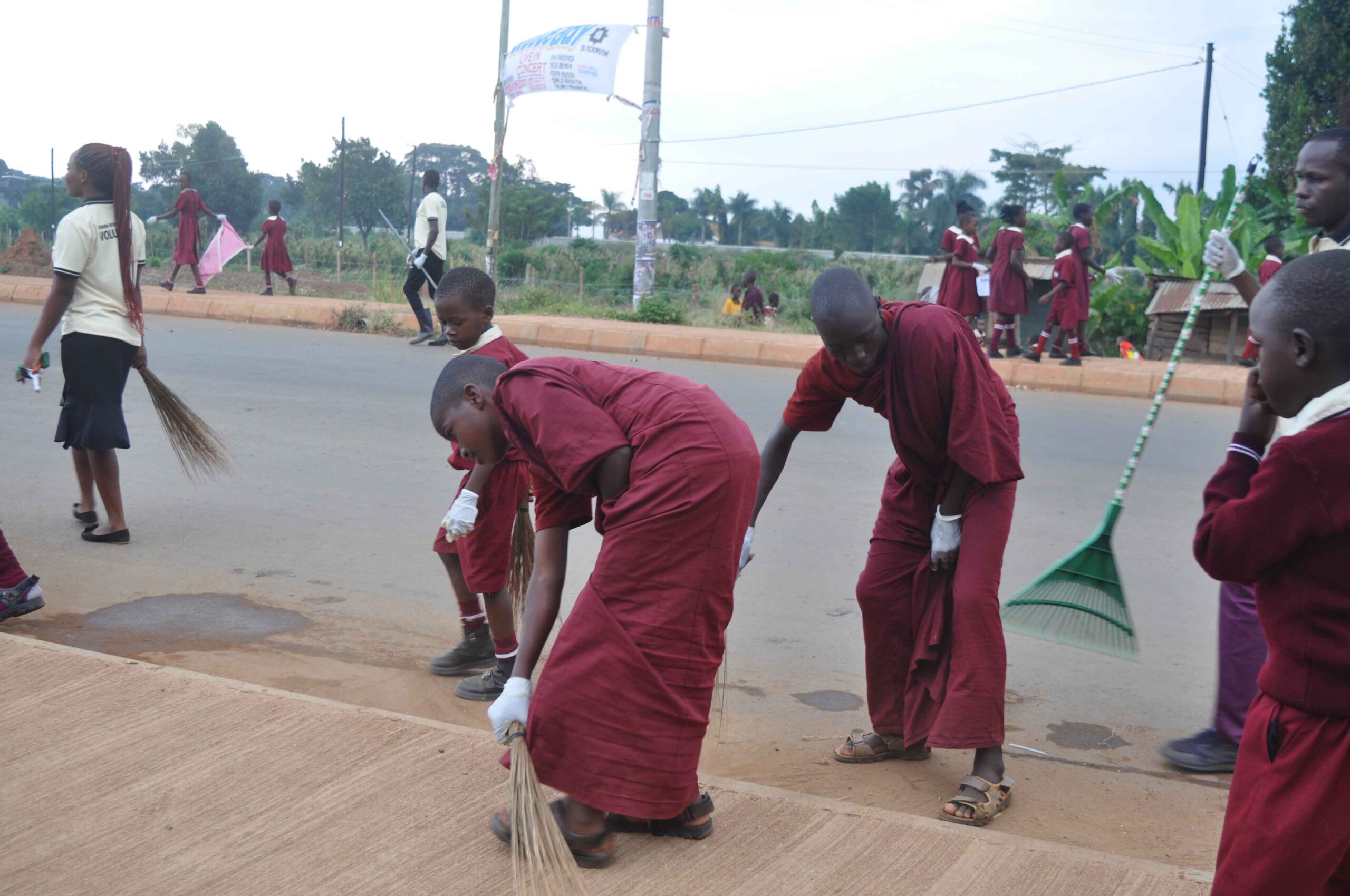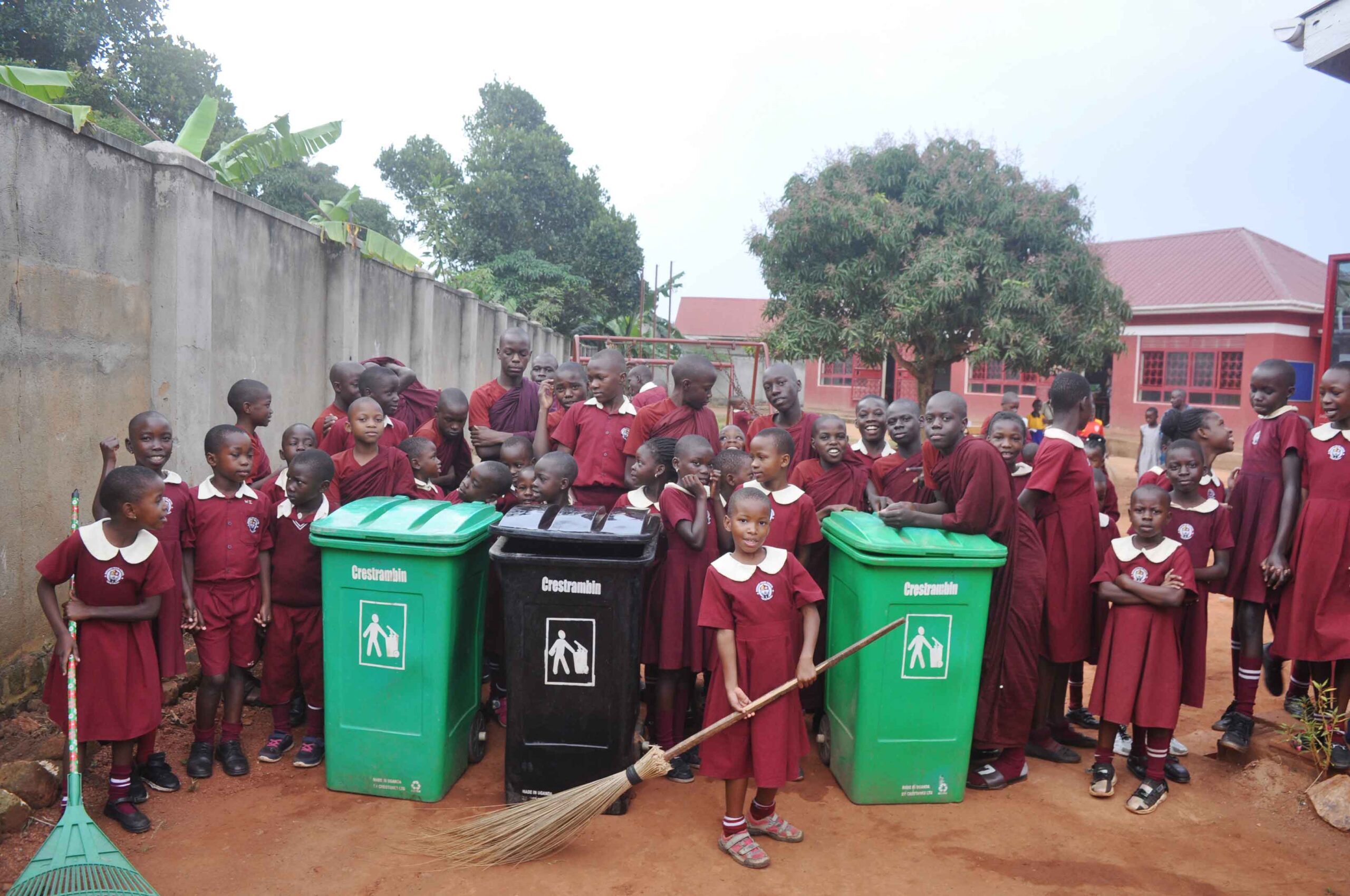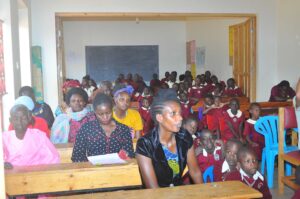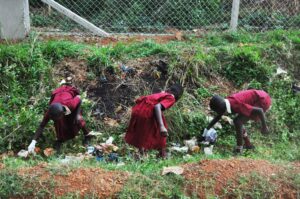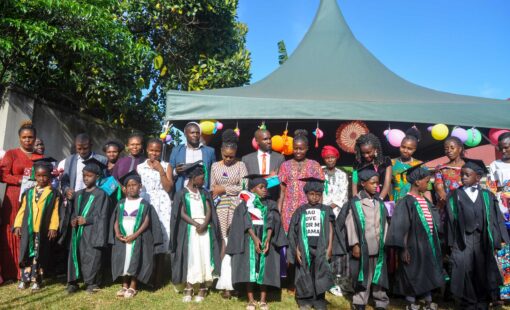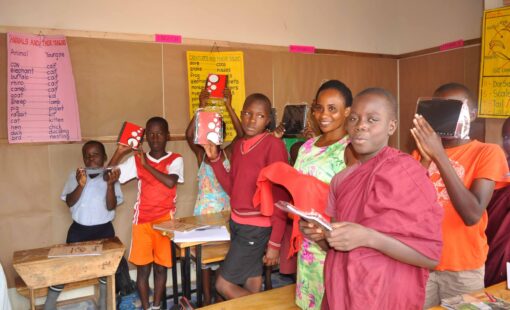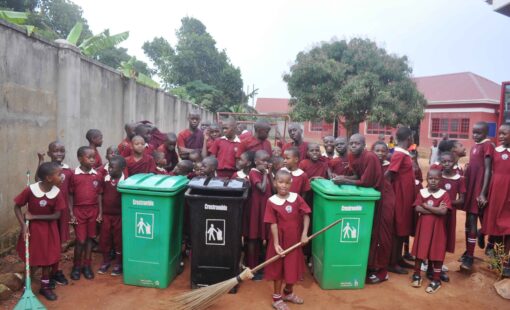On Saturday 19th August, the Buddhist Peace Schools, supported by the Uganda Buddhist Centre, held an exciting programme of environmental information and activities, attended by parents, representatives from surrounding schools, neighbours and distinguished guests.
The morning started with a mass collection and sweeping of litter in the surrounding villages and trading centres. More than eight large sacks and three big bins full of litter were picked up by the children, teachers and staff of UBC/BPS. Everyone pulled together and work continued for two hours, until a rain shower sent participants scurrying for shelter.
A varied afternoon programme was run by the students of BPS, who spoke clearly and authoritatively. The main themes included the huge problems and dangers, both globally and locally, of the pollution and poisoning of our air and water, and how that impacts on the health and well-being of humans, other animals and plants. They explained that plastic never completely goes away, but after tens or hundreds of years, breaks down into tiny pieces called ‘micro-plastics’ that end up in our soil, our food, the air we breathe and our drinking water. We found out how animals on land and in water can be harmed or even killed by eating or getting trapped in plastic litter. We also heard how the practice of burning plastics releases very harmful toxins into the air. Students explained how they had carried out their own litter survey of the surrounding villages and had found, unsurprisingly, that the majority of the litter recorded was polythene bags and plastic bottles.
Equipped with this learnt and researched information, the children explained that they had decided to see if there was a way to stop or reduce the amount of harmful litter in the environment. So, they visited the Papercraft recycling centre near Arkright, where they were able to make attractive photo frames from recycled paper and watched a skilled glass-blower make beautiful vases, glasses and decorative objects out of crushed, recycled glass bottles. They saw how pavers could be made from plastic bottles. This was good news, they explained, as it meant there was no reason to throw plastic, glass and paper litter into the environment; instead, it could be collected and transported to a recycling centre. A P7 student taught participants about the 7Rs: Refuse, Reduce, Reuse, Repurpose, Repair, Recycle and Rot. Her key messages were: take you own bags shopping to avoid using plastic bags, carry a reusable water bottle with your own boiled water whenever you go out to avoid buying plastic water bottles and choose returnable glass soda bottles instead of plastic ones. UBC would love to be able to buy and place litter bins around the area so that local residents have somewhere to put their waste.
Following the presentation of problems and possible solutions, children showed briquettes they had made using cow dung, clay and charcoal dust which, they explained, helps to reduce the amount of charcoal needed and therefore the number of trees cut. After this, children gave strong performances of three poems that some of their teachers had written. These were on the topic of the benefits of trees and their importance in maintaining the health of our planet, providing homes for animals and the improving the environment, the problems of deforestation and how we can care for and plant more trees (reafforestation). If we cut one tree, we should plant at least two.
The day ended with a short presentation on the benefits of the Moringa Tree, before everyone carried a Moringa seedling to the UBC farm to plant.

